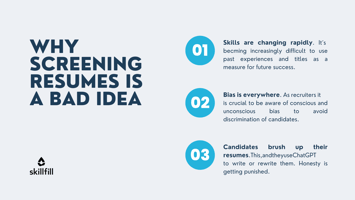The world is heading into recession - some believe that we are there already. Despite the fact that...
5 reasons why remote work refuses to go away
With COVID well and truly gone (fingers crossed), the world didn’t quite return to the same setup as in 2019 and before. In a lockdown reality, remote work was a temporary thing and many people were looking forward to the day when they can safely resume their 5-day office-based weeks. The pandemic is now gone and yet many people aren’t quite as enthusiastic about returning to office work as previously thought.
How many? Well, 50% as per The Washington post:
https://www.washingtonpost.com/business/2022/11/27/remote-jobs-economy/
According to the article, only 15% of new job postings offer remote jobs but they attract half of all applicants. It’s a striking statistic.
Why did remote work not only refuse to disappear after COVID but in fact is gaining strength?
1. Costs
As it turns out, commuting can be expensive. We always knew that but we didn’t know that there was a choice in the matter. Take London for example a monthly travel card can cost upwards of $300. With raising fuel prices all over the world, those driving to work will find it less affordable too and that’s without starting to think about traffic jams. Additionally, we tend to spend a substantial chunk of our budget on food and drinks - many people realized how substantial when stuck at home during the lockdown. All those expenses add to hundreds of dollars each month.
- Change of lifestyle
During the lockdown our mental health needed far more attention: places we could normally escape to were no longer there. Burying our problems in a heap of office work was no longer an option. To cope, many people were forced to change their habits and work on their mental health with mindfulness and purpose. New activities, change of lifestyles, and most importantly the mentality shift that many people have experienced became an eye opener. While some dived right back into their pre-pandemic office 9-5, others decided to stick to their newly found way of life, realizing that while work provided a sense of accomplishment and purpose, it just isn’t everything in life. Thus came the ‘I want a true work-life balance, not a pizza bought by the management at 5 pm on a Friday’ mentality. Let’s be clear: not everyone likes it. Some will not enjoy work unless it’s the Wolf of Wall Street-style corporate hassle and that is okay. Not everyone will thrive in a remote environment, as the pandemic showed. But some will.
- Lack of talent
The pandemic showed us that when faced with no other options, remote work is possible. Some organizations embraced the concept and accepted that in many cases, the best candidate for a role may be based in another city or even country and they may not be willing to relocate. Others made the mentality switch having been forced to through a difficult hiring process. Cases where there just aren’t enough good applicants for a job that can easily be done from elsewhere, often push organizations into ‘seeing what is out there’. Typically, these moves leave companies astonished at the size of the global talent pool that they weren’t used to before their mentality shift.
- Time management
I live in London, around 4 miles from the center (here it’s considered quite good). Depending on the day, it’d take me 50-60 minutes to get to Central London during the rush hour. That’s about 2 hours a day on the move - add to it the time it takes to be ‘office ready’ (let’s face it, Zoom apparel is far more forgiving than a face-to-face one) and the time it takes to wind down after returning home from work. We are looking at around 3 hours daily - this is 15 hours each week. For some, this is massive.
- Productivity
There are hundreds of sources out there claiming that working remotely boosts productivity. Elon Musk disagrees. But the truth is, being an office social butterfly takes time. I often find myself opening my laptop ‘just to check the emails’ from my living room sofa and ending up doing a good chunk of work before the day even begins - something that wouldn’t happen if I worked from an office. Additionally, many of us are (un)lucky enough to be judged on work done rather than hours spent - rightly so. That often led to leaving the office late at night, skipping lunch breaks, or not looking up from your laptop for most of your working day due to impending deadlines. Many people now find themselves being able to process much greater amounts of work from the comfort of their own house.
Summary
Remote work isn’t for every position and neither it is for every person. But it appears that at least half of us find it pointless to spend much of our week commuting or spending money on doing so when it can be done from home. All while being able to maintain a good quality of life.
There’s elite talent out there on both sides of the fence, but it’s important to ask ourselves if companies can afford to say no to half of the talent pool by not hiring remotely.
Remote work is here to stay as the world has just become much smaller and at least in data and IT roles, there are no more small talent pools in each region - now there is one big global talent pool.
And let’s be honest - elite talent can pick and choose - it’s one of the perks of being great at your job. And if those people view the quality of life and home based comforts as a modern necessity, we oblige or miss out. Free pizzas no longer work.
ASSESS TECH TALENT BEYOND CVs
Start today your 14-day free-trial and identify the best tech talent to join your team.



